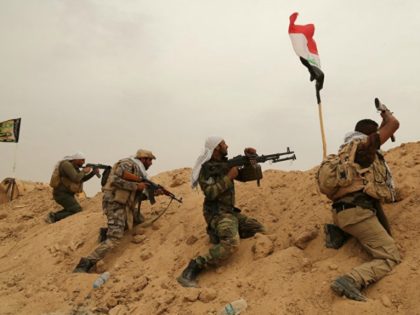Iraq Condemns U.S. Strikes on Iran-Backed Militias but Does Nothing to Stop Attacks
The U.S. conducted airstrikes against facilities used by an Iran-backed militia in Iraq after a ballistic missile attack on U.S. forces.
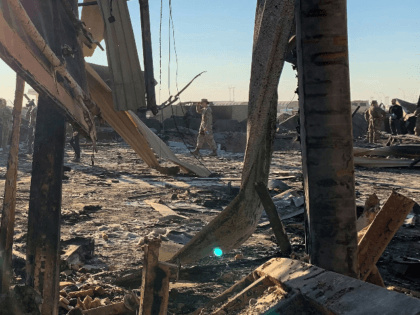
The U.S. conducted airstrikes against facilities used by an Iran-backed militia in Iraq after a ballistic missile attack on U.S. forces.

The Biden Administration said it had legal authority to conduct lethal airstrikes in Syria under Article II and United Nations Charter 51.
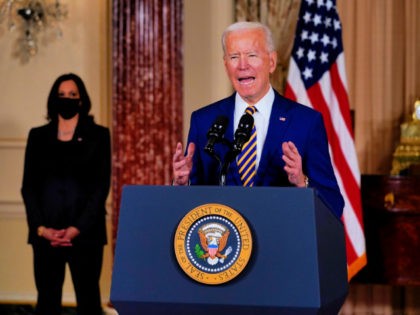
An Iran-backed militant group in Iraq called Saraya Awlia al-Dam, or “Guardians of Blood Brigades,” quickly took credit for Monday’s rocket attack on the Erbil International Airport in the Kurdistan region.
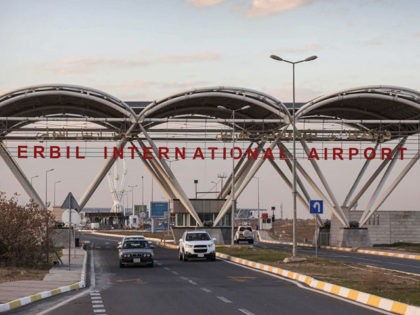
Iraq announced a travel ban on the governor of Kirkuk, Rakan al-Jabouri — appointed to restore Baghdad-led leadership and expel Kurdish leadership in the aftermath of the 2017 Kurdish independence referendum — on Tuesday amid charges of criminally misappropriating public funds.
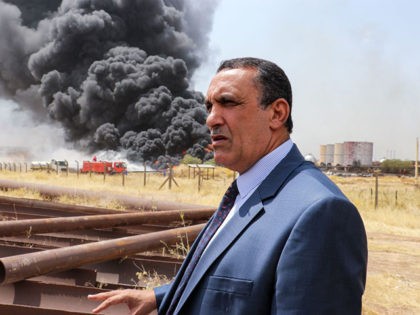
President Donald Trump honored the family of a U.S. soldier killed in Iraq during his State of the Union speech Tuesday, assuring them that the “evil reign of terror” of the man responsible for the murder, Iranian terror chief Qasem Soleimani, was over.
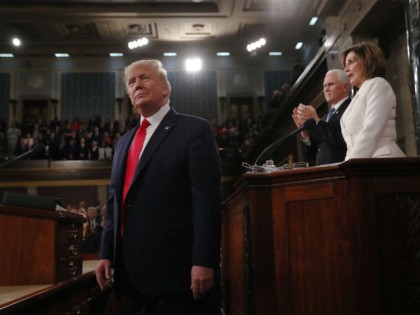
Muqtada al-Sadr, perhaps the second most influential Shiite leader in Iraq after Grand Ayatollah Ali al-Sistani, on Thursday urged Shiite militia forces to be “patient” and stand down because the “crisis is over” between the U.S. and Iran.
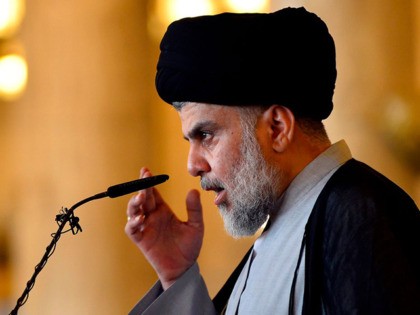
Iranian militia leader Hadi al-Amiri, one of several identified as leading an attack on the U.S. embassy in Baghdad on Tuesday, reportedly visited the White House in 2011 during the presidency of Barack Obama.
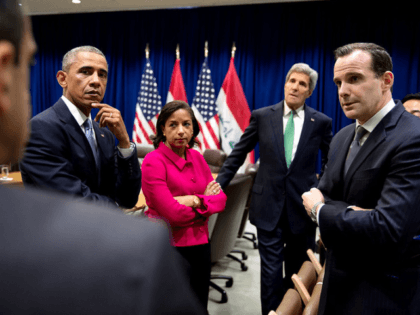
Massive demonstrations were held in Baghdad on Wednesday against corruption, government inefficiency, and high unemployment.
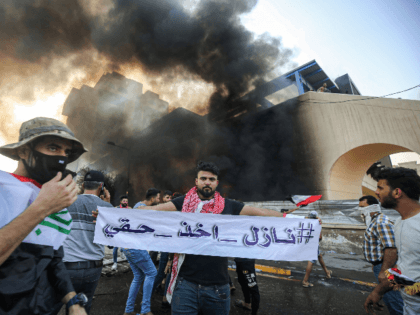
Iran’s leader Ayatollah Ali Khamenei urged Iraq on Saturday to demand U.S. troops leave its soil “as soon as possible.” The call came after a visit by Iraqi Prime Minister Adel Abdul Mahdi intended to enhance Tehran’s influence with its neighboring Arab country.
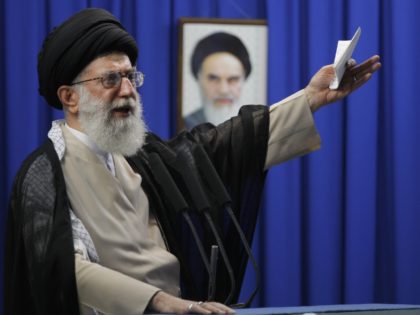
Iran’s Foreign Minister Mohammad Javad Zarif announced on Monday that his president, Hassan Rouhani, has planned his first-ever visit to Iraq, currently scheduled to occur on March 11.
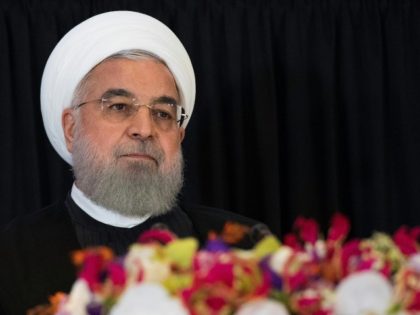
State sponsor of terrorism Iran is providing “ballistic missiles” to Tehran-allied Shiite militia groups in Iraq, a top U.S. Department of State (DOS) official declared Thursday.
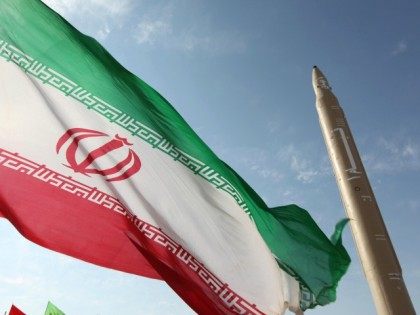
Turkish Foreign Minister Mevlüt Çavuşoğlu confirmed on Thursday that Ankara is preparing for a new military operation in Iraq, backed by the government in Baghdad, against the Marxist Kurdistan Workers’ Party (PKK) terrorist group.
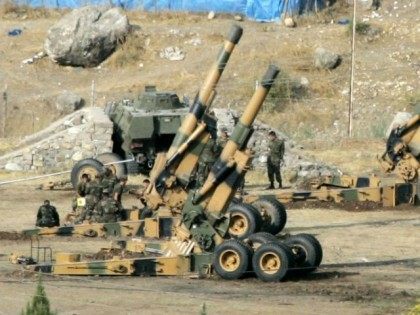
Masrour Barzani, the head of the Kurdistan Regional Government (KRG) security council in Iraq, told the outlet Kurdistan 24 during a visit to Washington this week that the Islamic State is “re-emerging” in places like Kirkuk, previously held by the Kurdish Peshmerga.
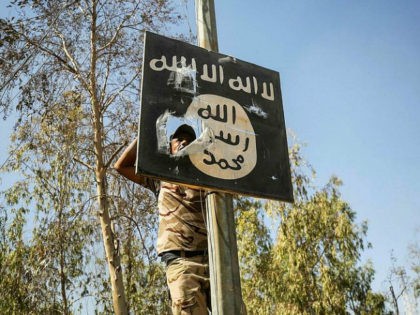
The Iran-backed, mostly Shiite militias he legalized last year revoked their electoral support for Iraqi Prime Minister Haider al-Abadi on Wednesday, two days after officially endorsing him.
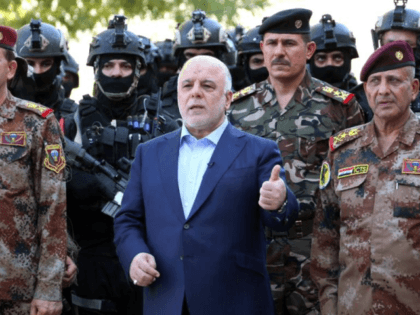
Contents: Thousands of Kurds in violent protests against Kurdistan government in northern Iraq; Iraq’s Baghdad government splits over role of Iran-backed Shia militias
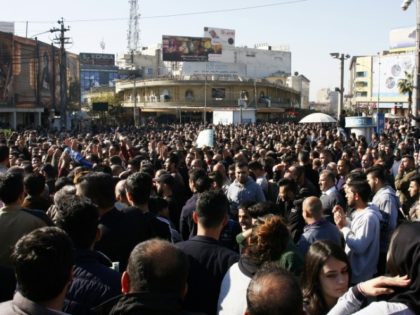
A senior commander for the Iran-backed Popular Mobilization Forces (PMF) operating in Iraq, also known as Hashd al-Sha’abi, demanded American military forces must leave Iraqi soil following the defeat of the Islamic State.
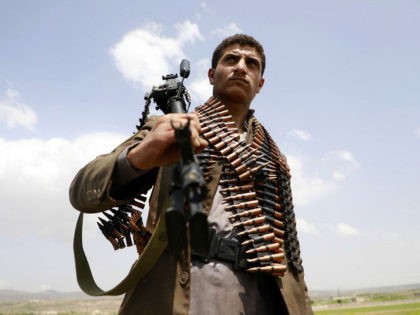
Iraqi Prime Minister Haider al-Abadi has once again demanded that the Kurdish armed forces, the Peshmerga, allow him to take over as their commander-in-chief or significantly diminish in size, apparently taking advantage of Kurdish President Masoud Barzani’s announcement that he would step down from his role on November 1.

The Patriotic Union of Kurdistan (PUK), a minority party in the Kurdistan Regional Government (KRG) of Iraq, has warned that continued attacks by the Iraqi military and Iran-backed Shiite militias could result in another “genocide” campaign against the ethnic group.
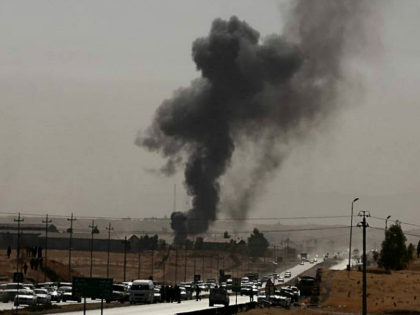
President Donald Trump has yet to personally weigh in – either through official White House outlets or on Twitter – on the burgeoning civil war in Kirkuk, Iraq following the invasion of the Kurdish-held province by Iraqi soldiers and Iran-backed Shiite militias.
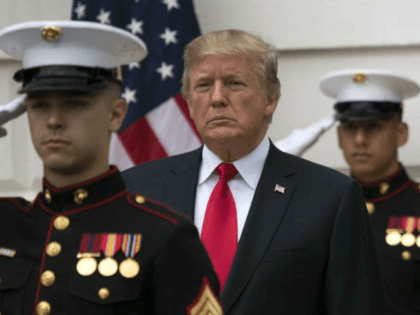
Iraq is on the precipice of civil war with tens of thousands of Kurdish Peshmerga forces preparing to face down the Iraqi Army and thousands of Iran-backed Shia militia advancing towards the northern Kurdish-controlled city of Kirkuk.
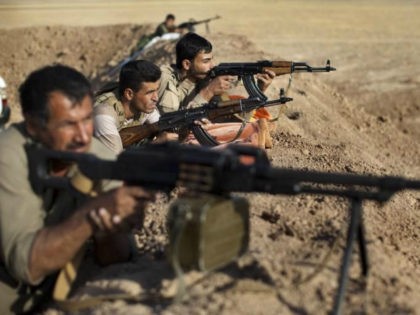
Representatives of the Kurdistan Regional Government of Iraq (KRG), including a spokesman for the Peshmerga, has requested the United States increase its aid to the group as the Peshmerga undergo a major restructuring intended to evolve them from one of the most effective militias in Iraq into the military of an independent Kurdistan.

Iraqi officials are preparing for the arrival of Prime Minister Haider al-Abadi to the nation’s largest city, Mosul, to declare victory after three years of Islamic State (ISIS) control.
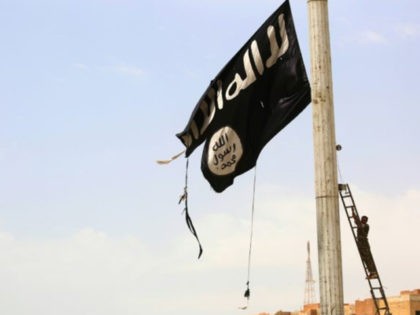
A group affiliated with a predominantly Shiite paramilitary force backed by Iran and legally operating as a component of the Iraqi military has reportedly bombed Kurdish Peshmerga positions in northern Iraq’s Sinjar region, Rudaw reports.
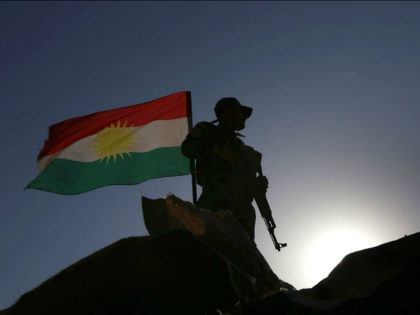
Iraq has launched an investigation into alleged violations of human rights and other abuses against civilians purportedly committed by some of the country’s service members and their allies, including Iran-backed Shiite fighters.
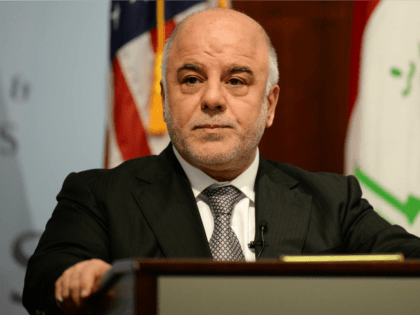
Fighters from the Popular Mobilization Units (PMU), an Iraqi state-sponsored umbrella organization of mostly Iran-allied Shiite militias, have established a presence in northern Iraq’s Kurdish region with the ultimate purpose of erecting a base there, Rudaw has learned from the Kurdistan Democratic Party (KDP).
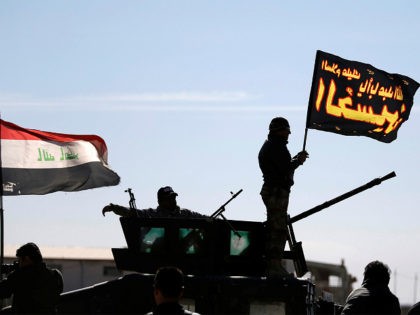
The predominantly Shiite Popular Mobilization Units (PMU) has been using weapons provided by the United States, Europe, Russia, and Iran to commit war crimes in Iraq, according to the human rights watchdog Amnesty International.
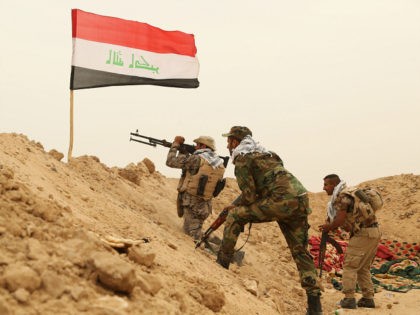
Iraqi paramilitary forces have recaptured a strategic airbase outside the northern city of Tal Afar, a spokesman for the Popular Mobilization Forces said.
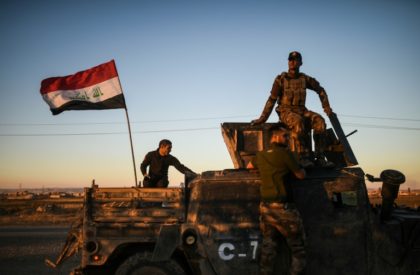
Two weeks since announcing the start of the operation to liberate the city of Mosul from the Islamic State, the Iraqi army has crossed the city limits, and authorities claim troops are progressing steadily in capturing the city’s dense urban neighborhoods.
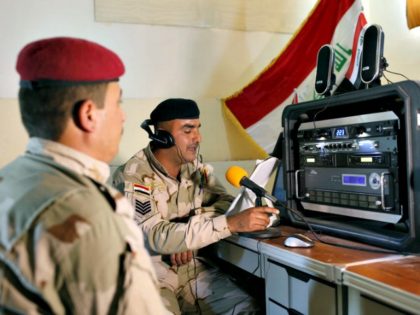
Contents: Shia militias in Iraq may or may not be attacking Tal Afar near Mosul; ISIS using tens of thousands of men, women and children as human shields in Mosul; Conflicts among ethnic groups lead to chaos in Mosul operation
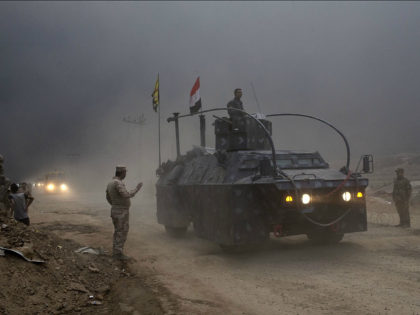
The U.S. military has denied reports suggesting that fighters from Iran’s terrorist proxy Kataib Hezbollah, or Hezbollah Brigades, are fighting alongside U.S.-backed Iraqi troops and their allies in the offensive to retake Mosul from the Islamic State (ISIS/ISIL).
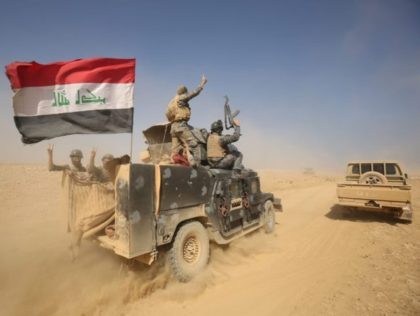
Contents: Unrealistic expectations surround the battle to recapture Mosul from ISIS; Turkey views Iraq and Syria through the lens of World War I and the Ottoman Empire

WASHINGTON, D.C. — American troops, including some who are embedded with advancing forces, are “in harm’s way” as they collaborate with troops from Iraq, the Kurdish Peshmerga, and Iran-linked Shiite militias in the fight to retake Mosul from the Islamic State (ISIS/ISIL), according to the Pentagon.
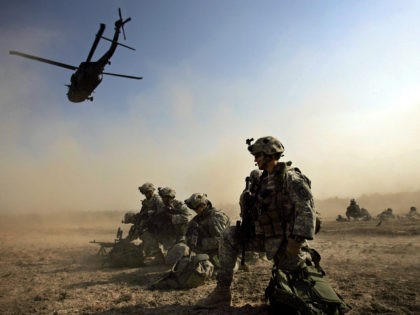
Contents: Turkey and Iraq in dispute over Turkish participation in Mosul operation; Turkey views the Mosul operation as a security threat to Turkey; ISIS may be given a chance to escape to Syria
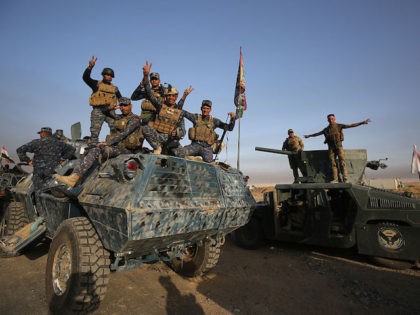
Iran continues to expand its influence in Iraq through at least 80,000 Shiite militia fighters, prompting concerns that the Shiite country may replace the Islamic State (ISIS/ISIL) should it be defeated, reports Fox News.
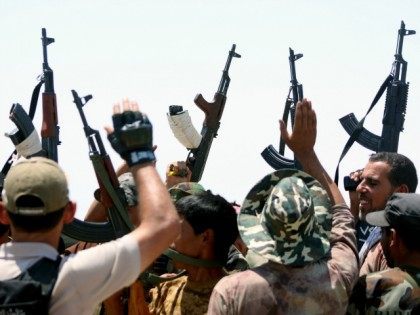
Shiite militias in Iraq, many of them backed by state sponsor of terror Iran, have been accused of torturing “hundreds” of Sunni civilians captured during the ongoing battle to retake Fallujah from the Islamic State (ISIS/ISIL).
